 Authored by Saudiwoman
Authored by Saudiwoman
Remember, in a former post, when I said that Saudis were captivated and shocked by what happened in Tunis and Egypt but hadn’t collectively made up their mind about it? Well it appears that they have. Everywhere I go and everything I read points to a revolution in our own country in the foreseeable future. However we are still on the ledge and haven’t jumped yet.
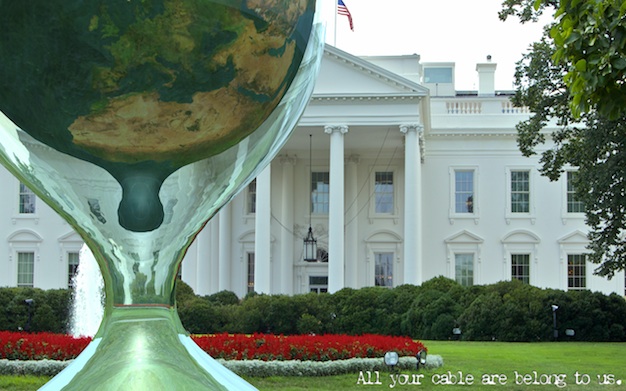 The Guardian: Ugandan gay rights activist 'mocked' at rights seminar
The Guardian: Ugandan gay rights activist 'mocked' at rights seminar
"US embassy cable reports on Uganda's rising homophobia, even at a UN-backed human rights meeting attended by activist David Kato, who was later murdered."
The Telegraph: US wanted 'derogatory' information on Bahrain king's sons
"The US State Department secretly asked its diplomats in Bahrain to report any "derogatory" information about two of the King's sons and evidence of "rivalry" with senior members of the ruling royal family, leaked documents show."
Aftenposten: WOLFOWITZ AND GROSSMAN PRESS TURKS FOR SUPPORT ON IRAQ
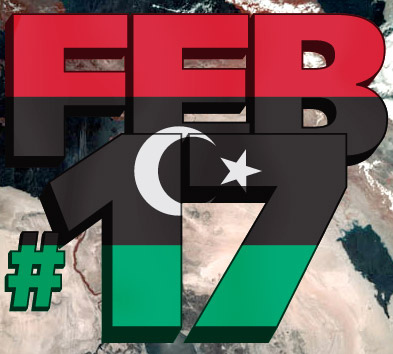 *Author's note: Previously, it had been mentioned that a Part 2 of a feature story titled "WikiLeaks Vindicates Those Behind Unfolding Revolutions" would run before the week was over. Publication has been postponed so proper coverage of cables and news related to Yemen, Algeria, Libya, Bahrain, Iran, Iraq, etc can be focused on instead.
*Author's note: Previously, it had been mentioned that a Part 2 of a feature story titled "WikiLeaks Vindicates Those Behind Unfolding Revolutions" would run before the week was over. Publication has been postponed so proper coverage of cables and news related to Yemen, Algeria, Libya, Bahrain, Iran, Iraq, etc can be focused on instead.
Libyans are mobilizing for a “Day of Rage” today on February 17. Protesters in the early afternoon, according to a member of the Libyan Youth Movement, were reported to be moving to the Security Headquarters in Benghazi. The protests are said to be gaining numbers and are headed for Maydan al Shajara once more, a location that had been the site of gunfire and petrol bombs.
The same individual also reports shortages of medical supplies at Al Bayda hospital and urges international health organizations to help out. And the movement member shared reports of people in Benghazi managed to chase away “pro-government Gaddafi thugs” by throwing rocks at them.
Many in Libya believe ahead of the “Day of Rage” that the Gaddafi regime was planning to threaten Libyans with live fire and the targeting of family members if they participated in anti-government protests. Also, it was reported that Gaddafi was having government employees go protest at pro-Gaddafi rallies, and, if they refused, they would be fired.
Cables released on Libya provide context for the protests that are unfolding. 09TRIPOLI192 from February 2009 titled, “For Ordinary Libyans, It’s the Economy Stupid,” breaks down what might be frustrating Libyans and why Egypt may have been just what they needed to be inspired to take action. The cable suggests Libyans are more interested in economic democracy, not political democracy:
 El País: EE UU, alarmado de la falsificación de documentos en México para pasar la frontera (The United States are alarmed due to the falsified documents in Mexico to cross the border)
El País: EE UU, alarmado de la falsificación de documentos en México para pasar la frontera (The United States are alarmed due to the falsified documents in Mexico to cross the border)
"El delito organizado y las mafias del narcotráfico controlan este negocio, al que cada día acuden más mexicanos ricos para huir de su país. (The organized crime and the drug gangs control this business, which every day is being used by more rich Mexicans who want to escape from their country.)"
El País: Estados Unidos alaba el tacto de Chile en sus enfrentamientos con Perú (The United States praises the Chilean touch during its confrontations with Peru)
"Los papeles de Wikileaks revelan cómo la superpotencia saca provecho de la carrera militar entre sus dos aliados. (The Wikileaks documents unveil how the super potence takes advantage of the military affair between its two allies.)"
El País: Bush apoyó la participación de España en el G-20 para obstaculizar la regulación de flujos de capital (Bush supported the participation of Spain in the G-20 to block the regulation of capital flow)
"La embajada de EE UU defendió "fervientemente" invitar a Zapatero a la reunión de Washington de 2008. (The American Embassy defended "fervently" the invitation of Zapatero to the Washington meeting in 2008.)"
“No suníes, no chiíes, solo bahreiní” es el cántico que se escucha ahora mismo en Manama, capital de Bahréin. Hasta ahora los enfrentamientos políticos en el país habían sido siempre motivados por diferencias entre estas dos etnias, sin embargo, desde el 14 de Febrero (25 Bahman), miembros de ambas partes, jóvenes, viejos, mujeres y niños se han unido para luchar juntos por sus derechos. Gracias a blogs y cuentas de Twitter que lograron escapar la censura del gobierno, sabemos que las protestas pacíficas que se estaban llevando a cabo en la glorieta de Lulu terminaron en una masacre de civiles: hay un número no confirmado de muertos y heridos, así como centenares de detenciones.
Asuntos Internacionales
Para entender mejor el pasado político y militar del Reino de Bahréin debemos retornar una vez más a los cables filtrados del Departamento de Estado. En 08MANAMA496, C. Henzel, Charge d’Affaires de los EEUU en Bahréin, dice que como este es “el Estado más pequeño del Golfo, históricamente ha necesitado mejores relaciones con el Occidente por motivos de seguridad que el resto de sus vecinos”. Otros cables aseguran que en 2008 los líderes de Bahréin estaban “enfocados prioritariamente en defenderse del potencial de los misiles Iraníes pero también en maximizar radares costeros”. Así, en ese mismo año “el gasto militar de EEUU en Bahréin fue de 3.9 millones USD. El Departamento de Estado presionó para incrementar ese número para el siguiente año.”
A little more than two months ago, as in some previous cases, Greg Mitchell started live-blogging when a major story broke. But a funny thing happened with WikiLeaks’ “Cablegate” release: The story, and the reader interest, did not go away after a couple of days—as the cables kept coming out, the controversies spread, and Julian Assange became a household name in America.

A facebook group has appeared calling for a protest "against corruption" in Qatar. "Support the revolution, Qatar February 27 against corruption." Neither the posted info nor the comments have issued more specific demands, than to "topple this corrupt regime" but 500 people have liked the page which has been up since around February 8.
The current Emir of Qatar, Hamad Bin Khalifa took control from his father in 1995. He has been criticized in the Arab world for meeting with Israeli minister Tzipi Livni, and for supporting the Al Jazeera news network which is critical of other Arab governments and frequently airs western and Israeli views.
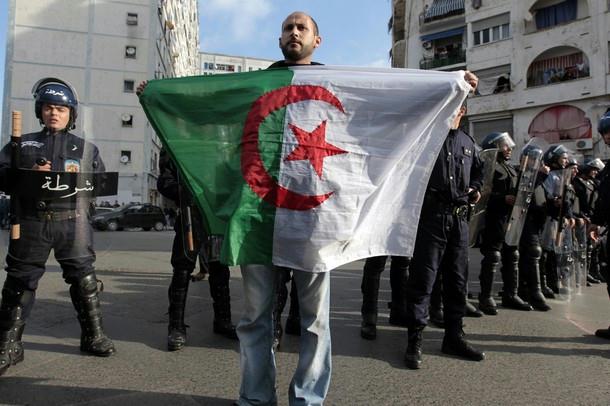 (update below)
(update below)
Algerians that participated in a “Day of Rage” on February 12 continue to come out and protest. The news site Bikya Masr reports “Algerians pledge to continue to demonstrate until President Abdelaziz Bouteflika has been removed from power.” The protesters inspired by Egypt intend to begin to engage in sit-ins that can hopefully bring the country to the brink like Egyptians brought their country to the brink and forced President Hosni Mubarak from power.
Demonstrators chant, “Bouteflika out,” but not all of them. Some just want democratic reforms. Those demonstrating have mostly been Islamists or pro-democracy activists.
They talk about the fear being gone after what unfolded in Egypt and Tunisia.
 The Telegraph: Egypt’s new man at the top 'was against reform'
The Telegraph: Egypt’s new man at the top 'was against reform'
"The military leader charged with transforming Egypt opposed political reform because he believed that it “eroded central government power”, according to leaked US diplomatic cables."
The Guardian: WikiLeaks cables show no evidence of Iran's hand in Bahrain unrest
"US sources dismissive of Bahraini allegation, and as early as 2008 noted tensions between its Shia majority and Sunni rulers.
The United States has repeatedly dismissed claims by the Bahraini government that Shia Muslim unrest in the Gulf island state is backed by Iran."
El País: Guatemala, un país controlado en un 60% por el narcotráfico, según el fiscal Castresana (60% of Guatemala is controlled by drug sales, according with the attorney Castresana)

Tal al-Mallouhi was arrested in Syria in December 2009, and yesterday, at 20 years old, was sentenced to five years in prison for spying, an action condemned by the Committee to Protect Journalists. She had written blog articles saying she wished to play a role in shaping the future of Syria, and asking US president Barack Obama to do more to support Palestine. She was charged with "revealing information that should remain hushed to a foreign country". An official told Al Jazeera she "deserved 15 years in prison but her sentence was commuted considering her age".
PJ Crowley, of the US state department, "sharply criticized" Syria's handling of this case. Obama recently interfered in a similar case in Yemen, that time demanding that a Yemeni journalist remain in prison for reporting the truth about a US attack in Yemen that killed 55 civilians.
 Saudi Arabian Mufti Sheikh Yusof al-Ahmad warned that Saudi Arabia could also face a revolution unless steps are taken to fight widespread unemployment and poverty. He criticized government spending as wasteful and called for supervision over public spending. In particular, he criticized a recent USD 29.8 billion spent on King Abdullah University. The unemployment rate in Saudi Arabia is 10.5% (official) or as much as 20% (unofficial) and parliament recently announced that 22% of the population live below the poverty line.
Saudi Arabian Mufti Sheikh Yusof al-Ahmad warned that Saudi Arabia could also face a revolution unless steps are taken to fight widespread unemployment and poverty. He criticized government spending as wasteful and called for supervision over public spending. In particular, he criticized a recent USD 29.8 billion spent on King Abdullah University. The unemployment rate in Saudi Arabia is 10.5% (official) or as much as 20% (unofficial) and parliament recently announced that 22% of the population live below the poverty line.
WL Central has already reported one Saudi Arabian protest in an article on February 2 and another reported on February 13 along with a protest scheduled for February 18.
Yemen protests started in mid January with a self immolation and the arrest and release of Yemeni activist Tawakel Karman, and they have not really stopped since. A Day of Rage was organized for February 3 but tens of thousands were in the streets on January 27 as well as many smaller protests, throughout the time period. The last five days have seen a huge increase in the numbers in the streets, as well as the violence directed at them. According to Human Rights Watch, president Ali Abdallah Saleh’s security forces have attacked demonstrators, activists, lawyers, and journalists in Yemen capital city Sanaa without justification. An estimated 3000 people protested from Sana'a University, clashing with police and pro-Saleh demonstators using batons, rocks, and occasionally knives. Today in Taiz, over 2500 people are refusing to leave and are forming committees and buying tents to continue occupying their protests grounds.
The videos below show the current size and emotion of some of the protests.
January 27, 2011
 Despite all search engines showing nothing but football for news in Cameroon, Twitter insists they are having a revolution, beginning with protests on February 23. The hashtags are being used, but there is very little under them. The Cameroon Tribune reports “Thousands of youths last Thursday, February 10 marched in the streets of Yaounde to demonstrate their patriotism and commitment to preserve peace, stability and development in Cameroon. The march in support of President Paul Biya and the institution he incarnates was in reaction to the wind of violence and destabilisation of State institutions blowing across some African countries.”
Despite all search engines showing nothing but football for news in Cameroon, Twitter insists they are having a revolution, beginning with protests on February 23. The hashtags are being used, but there is very little under them. The Cameroon Tribune reports “Thousands of youths last Thursday, February 10 marched in the streets of Yaounde to demonstrate their patriotism and commitment to preserve peace, stability and development in Cameroon. The march in support of President Paul Biya and the institution he incarnates was in reaction to the wind of violence and destabilisation of State institutions blowing across some African countries.”
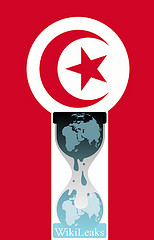 For those in countries that are working to topple brutal and oppressive regimes, there is a power that WikiLeaks cables have, one that can be tremendously beneficial. Cables from Tunisia, Sudan, Yemen, Syria, Algeria, Bahrain, Libya, Jordan, and Saudi Arabia all illuminate why the people of those countries would rise up against their governments. They compel people to acknowledge the magnitude of abuses and suffering that the people have been experiencing under autocratic regimes.
For those in countries that are working to topple brutal and oppressive regimes, there is a power that WikiLeaks cables have, one that can be tremendously beneficial. Cables from Tunisia, Sudan, Yemen, Syria, Algeria, Bahrain, Libya, Jordan, and Saudi Arabia all illuminate why the people of those countries would rise up against their governments. They compel people to acknowledge the magnitude of abuses and suffering that the people have been experiencing under autocratic regimes.
The planned “Day of Rage” protests being met with security forces and violence in Algeria, Iran and Yemen can be further understood thanks to the cables. The clashes in Bahrain and the brewing unrest in Syria can be illuminated because of the analysis from US diplomats in the cables. And, what continues to unfold in Egypt and Tunisia and inspire people in countries like Iraq, Jordan, Kuwait, Saudi Arabia, Sudan and Libya, whose people intend to hold their own “Day of Rage” on February 17.
Egyptian President Hosni Mubarak has resigned and is said to be in a coma or "psychologically devastated". His appointed replacement, Omar Suleiman, is nowhere to be found and the Egyptian army has taken over. There has been wild celebration in the streets of Cairo but there is good reason to think that all is not well and the danger is far from over. Thanks to the reporting of Robert Fisk, we now have the information upon which to arrive at the terrible conclusion of the title. Senior Egyptian army officers, the very ones that are exercising a military dictatorship now, where quite willing only two weeks ago, to carry out a wholesale slaughter of the thousands of protesters in Liberation Square.
Wikileaks has released the following in response to the Wikileaks Twitter case covered by WL Central here, here and here.
WIKILEAKS PRESS RELEASE
Mon Feb 14 18:28:37 2011 GMT
Tomorrow (Tuesday morning), a federal magistrates court in Virginia's national security heartland will be the scene of the first round in the US government's legal battle against Julian Assange. The US Attorney-General has brought an action against Twitter, demanding that it disclose the names, dates and locations of all persons who have used its services to receive messages from Wikileaks or Mr Assange. It is understood that Twitter will resist the order, so as to protect the privacy of its customers.
Assange said today "This is an outrageous attack by the Obama administration on the privacy and free speech rights of Twitter's customers - many of them American citizens. More shocking, at this time, is that it amounts to an attack on the right to freedom of association, a freedom that the people of Tunisia and Egypt, for example, spurred on by the information released by Wikileaks, have found so valuable".
On December 14, 2010, the US Department of Justice obtained an Order requiring Twitter turn over records of all communications between Wikileaks and its followers. This Order was acquired through the use of the "Patriot Act", which establishes procedures whereby the Government can acquire information about users of electronic communication networks without a Search Warrant, without Probable Cause, without particularizing the records that relate to a proper investigatory objective—and with without any public scrutiny. The basis for the Order remains sealed and secret.
Abdulmunir Mohammed from Mosul, a married man with four children, died yesterday after setting himself on fire in what is being reported as a continuation of Iraqi protests against unemployment. Today several hundred Iraqis held a Valentine's Day demonstration at Baghdad's Tahrir Square to call on their leaders to love Iraq rather than rob its resources, an organiser, Karnas Ali, a young engineer told AFP. "We do not want Valentine's Day to be only one day of love but a celebration for reform, democracy, citizenship and freedom."
On February 11 hundreds of lawyers marched in the streets of Baghdad, Karbala, Kut, Ramadi and Amara to protest corruption and unemployment, and call for open scrutiny of secret prisons and access to legal advice for prisoners. On the 10th, an anti corruption official had made a statement saying that ministerial coverup of corruption was frequent. Around 500 people marched in Baghdad that day. Media representatives had already marched in protest against high usage fees.
In an Al Jazeera video on February 9 (below) a government official states, "We know the suffering of the citizens. But we cannot deal with that by a decree. Electricity cannot come back by a ruling from the minister's cabinet saying tomorrow electricity should be running 24 hours a day." However, the government did just that on Saturday the 12th, promising Iraqi citizens their first 1,000 kilowatt-hours of electricity each month free of charge, courtesy of the Ministry of Electricity. In October the government had doubled the price of electicity. The government has promised to increase power imports from Iran and they are also talking with Syria and Turkey and planning to improve their own electrical output.
 The Guardian: Egyptian military head is 'old and resistant to change'
The Guardian: Egyptian military head is 'old and resistant to change'
"US ambassador to Cairo gives his opinion on Muhammad Tantawi and number two general, Sami Enan.
Nothing Egypt's military council has done in its past suggests it has the capacity or inclination to introduce speedy and radical change. Guaranteed its $1.3bn (£812m) annual grant from the US — a dividend from the Camp David peace accord with Israel – it has gained the reputation as a hidebound institution with little appetite for reform."
The Guardian: UK 'threatened to pull out of Open Skies deal', leaked US cables show
"Senior British civil servant warned that UK could pull out if the US did not approve BA's proposed tie-up with American Airlines, according to US embassy cables obtained via WikiLeaks.
Britain threatened to pull out of the controversial trans-Atlantic Open Skies aviation agreement if the US government did not approve British Airways's proposed alliance with American Airlines, a senior British civil servant warned US embassy officials, according to a leaked cable obtained via WikiLeaks."
El País: España aportará a EE UU pruebas que ayuden a condenar al cerebro del 11-S (Spain will contribute with proof to help the United States to condemn the brain behind 9-11)
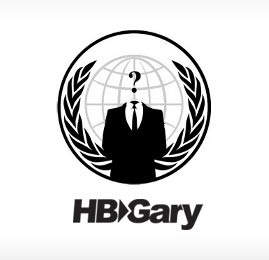
The release of tens of thousands of emails from executives working for the classified cybersecurity services firm HBGary, which was found to have proposed plans to target WikiLeaks last week, shows exactly what members of the firm meant when they discussed using fake documents to sabotage or target WikiLeaks.
(If you are unaware of the story that has been unfolding, here is previous coverage, which has appeared on WL Central.)
A search through the database for emails that discuss “WikiLeaks” reveals one email on “stopping WikiLeaks.” It links to a Wordpress blog called “Godel’s Lost Letter and P=NP,” which covers stories related to technology and theories of computing.
 The group of hacktivists known as Anonymous has released tens of thousands of emails from HBGary, a provider of classified cybersecurity services to the Department of Defense, Intelligence Community and other US government agencies. Anonymous leaked the emails after HBGary’s CEO Aaron Barr plotted to infiltrate Anonymous and uncover the identities of individuals within the group and after it was found out that HBGary and two other firms had been actively plotting to sabotage and target WikiLeaks.
The group of hacktivists known as Anonymous has released tens of thousands of emails from HBGary, a provider of classified cybersecurity services to the Department of Defense, Intelligence Community and other US government agencies. Anonymous leaked the emails after HBGary’s CEO Aaron Barr plotted to infiltrate Anonymous and uncover the identities of individuals within the group and after it was found out that HBGary and two other firms had been actively plotting to sabotage and target WikiLeaks.
Additionally, it has been reported that Anonymous has obtained Stuxnet access. That is because the emails, now public, were improperly secured. A cybersecurity service did not protect itself from the possibility of infiltration from hackers.
Theme by Danetsoft and Danang Probo Sayekti inspired by Maksimer